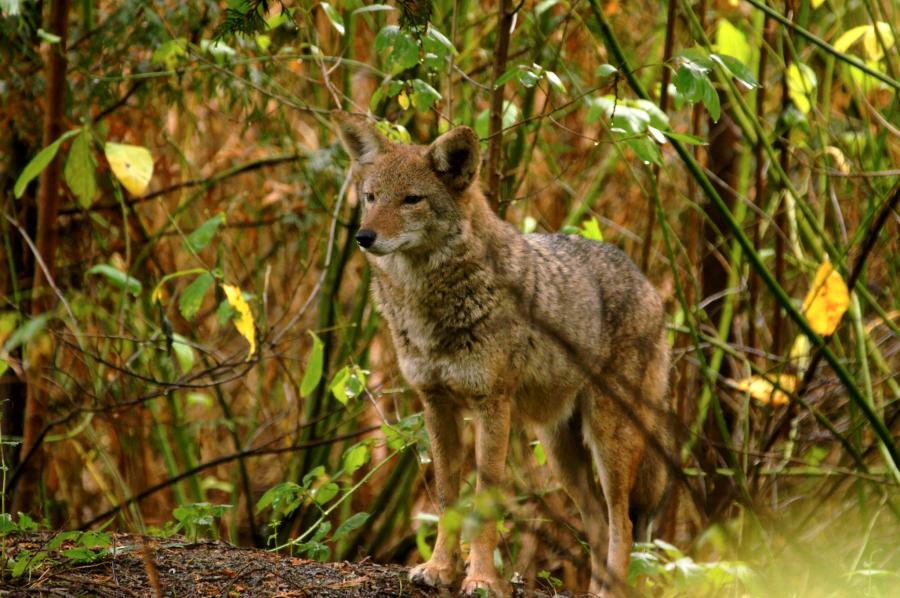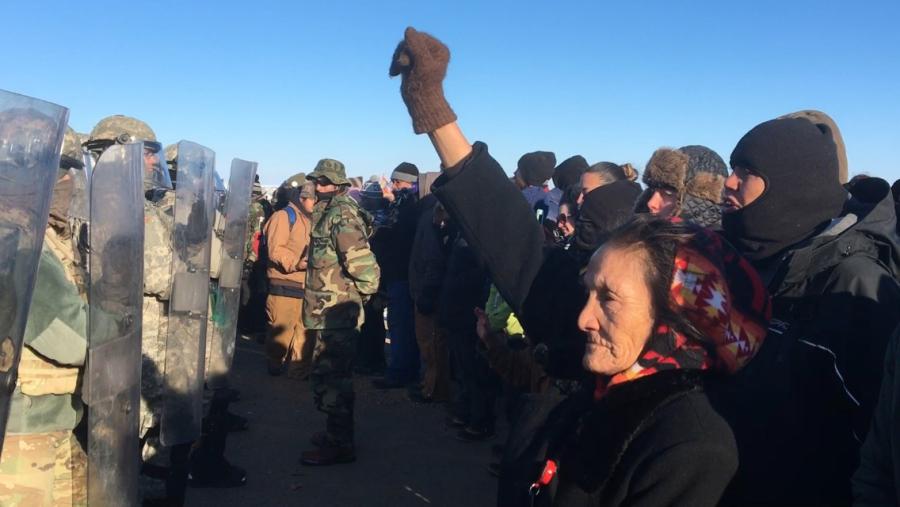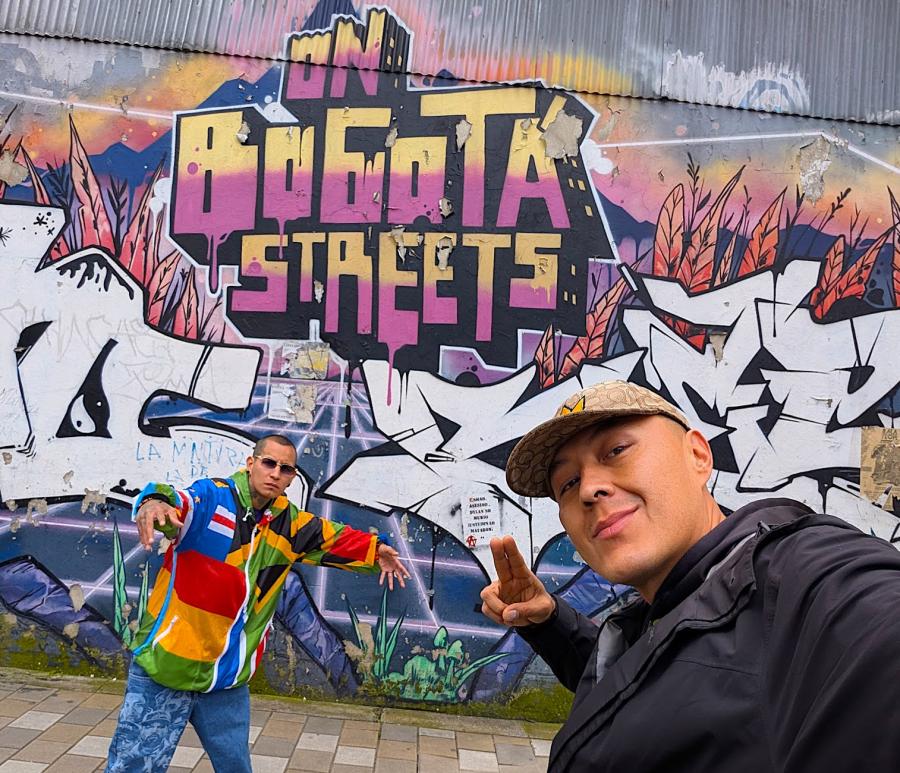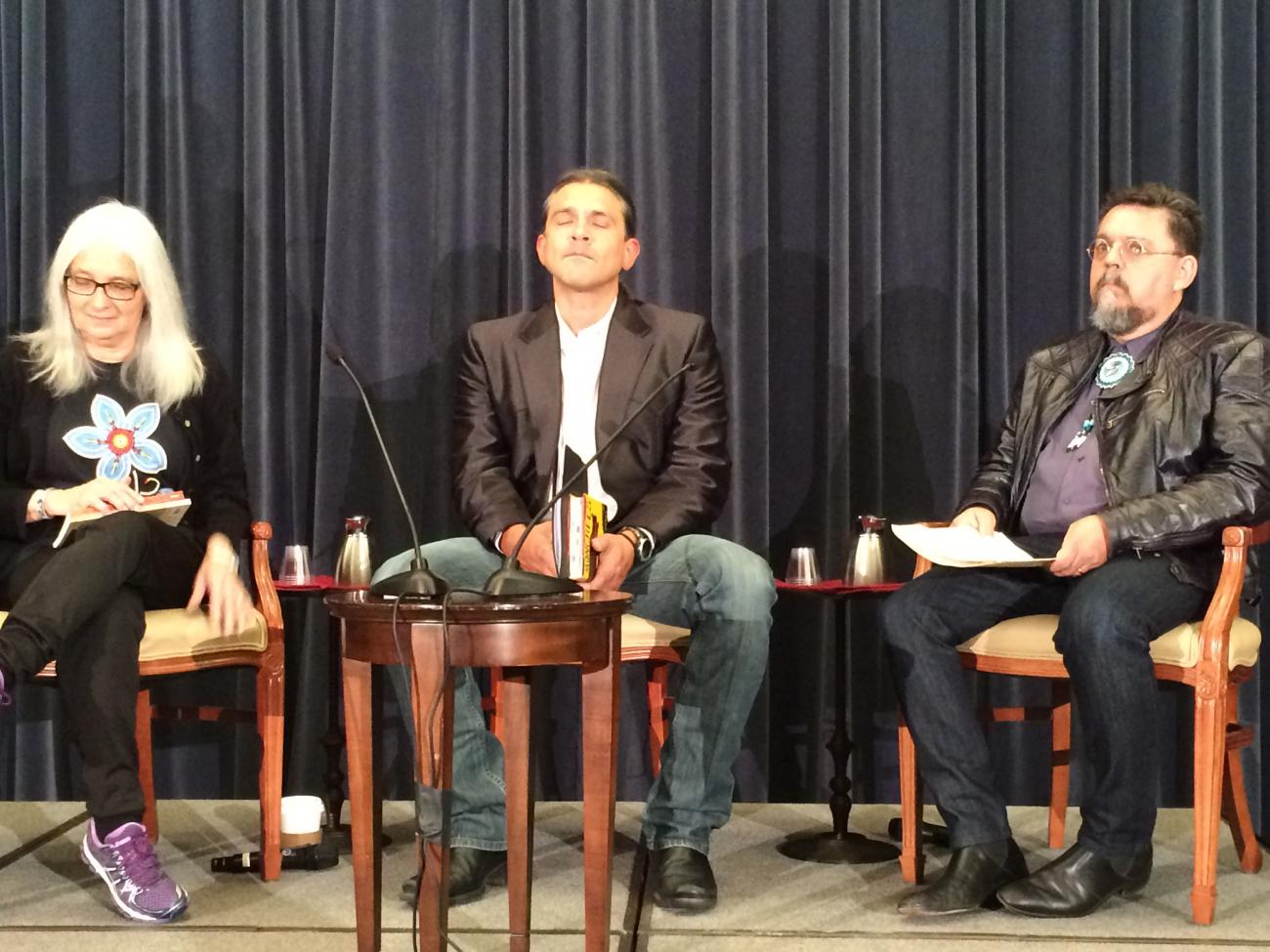
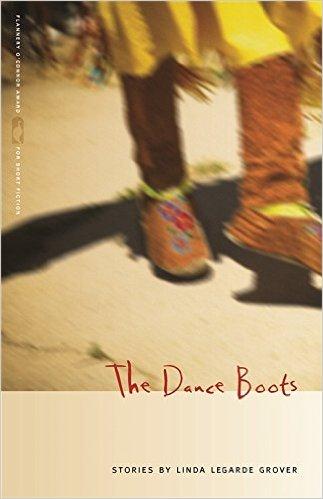
On May 10th the Library of Congress featured Native American writers on a panel, "Spotlight on Native Writers." Eric Gansworth, Linda LeGarde Grover, and Stephen Graham Jones read excerpts from their work and Deborah Miranda moderated the discussion and Q&A.
Shortly after "Spotlight" the writers and audience walked a few blocks to the Folger Shakespeare Theater for a reading and discussion by Louise Erdrich, the 2015 Library of Congress Prize in American Fiction winner who read from her new novel La Rose and participated in a discussion Q&A moderated by Professor Howard Norman of the University of Maryland.
Cultural Survival Contributing Arts Editor Phoebe Farris interviewed some of the writers before and after the two literary events co-sponsored by the Library of Congress and the PEN/Faulkner Foundation.
Linda LeGarde Grover (Bois Forte Band of Ojibwe) is the author of The Dance Boots (2010) and The Road Back to Sweetgrass (2014). Her short story collection, The Dance Boots, won the Flanner O'Connor Award and the Janet Heidinger Kafka Prize. In 2015 she won the Wordcraft Circle of Native Writers and Storytellers Fiction Award for The Road Back to Sweetgrass. Grover also has a poetry chapbook, The.Indian.At.Indian.School. Currently Linda is a professor of American Indian Studies at the University of Minnesota, Duluth.
Phoebe Farris: As a former member of Wordcraft, I am especially interested in hearing about your feelings when you won the 2015 award for The Road Back to Sweetgrass and would like you to briefly describe this work and its' significance for you.
Linda LeGarde: Well, before I won the 2015 award I had won the 2008 Native Writers Circle Award for the unpublished manuscript of Sweetgrass. It was an honor to receive both awards. When writer Lee Francis emailed to tell me it was very exciting. The book deals with women born on the cusp of federal termination in the early 50's.The book begins when the women are elders and goes back in time. It covers a background that includes a history of adoptions, family struggles, unrequited love and how the women survived these experiences.
PF: The Dance Boots has received a lot of publicity and reviews. Although I have not read it yet, I do know that some of the stories deal with an aunt/niece relationship. For some women it is easier to communicate to an aunt than one's own mother. Do you think the aunt/niece relationship is special in Ojibwe culture?
LL: Not necessarily. Many relatives, not always blood relatives can be honored in a special relationship. It does not have to be an aunt. There are special relationships that are connected to respecting elders so they can pass on knowledge to the next generation. Dance Boots deals with the coming of maturity against a backdrop of Indian boarding schools. It involves a century of time and includes 70's and 80's. The young woman/niece and aunt relationship references life's difficulties. As you know, boarding schools were designed to make Indians disappear through forced assimilation. Although these stories are not autobiographical my family had members who went to boarding schools and felt their experiences were too terrible to talk about. As an adult I finally got some details about their lives during that period. Dance Boots and Sweetgrass have similarities. Young women and men grow through the years and become wiser. Wisdom is hard earned. Federal termination in the 50's is interrelated with forced boarding schools because both policies had the same purpose, forced assimilation. Those programs did damage but did not succeed in getting rid of us. But the question is how does one come out of the other side after these experiences?
PF: How do you feel about being selected to be on the Library of Congress panel? Do you know any of the other writers and have you read their works?
LL: I feel honored to be on this panel sponsored by the LOC which is also the co-sponsor for Louise Erdrich's presentation later. I've met Louise and visit her bookstore Birchbark Books frequently. I have not met Eric Gansworth in person but I use some of his books in my classes. It will be exciting to meet the others because I am also aware of their works.
PF: Can you please explain to the readers what a chapbook is?
LL: A chapbook is a small book of poetry. My chapbook was put online by the University of Arkansas. It is a free service and helps to get writers works out there and better known. In the fall I will have a book of poetry published, The Sky Watched, that will feature some of the poems in my chapbook.
PF: You won a university teacher/scholar award. Does teaching inspire your writing? How do you manage teaching and research responsibilities with the need to create your own stories?
LL: I started college late in life as a part time student while working as a secretary at the university. Two of my children graduated from the university. Teaching helps me break a path for others. I am used to working at a job, studying, and also writing while still being involved with family life. Writing is a gift and a privilege. I don't have time for writers block.
PF: Is there anything more that you would like to share with Cultural Survival readers?
LL: I write with my mom and aunts in mind, family of that be generation, but also for a broader understanding so non-Indians can also learn about our history and culture. I want my writing to be readable for women. I want to give a story back to them.
